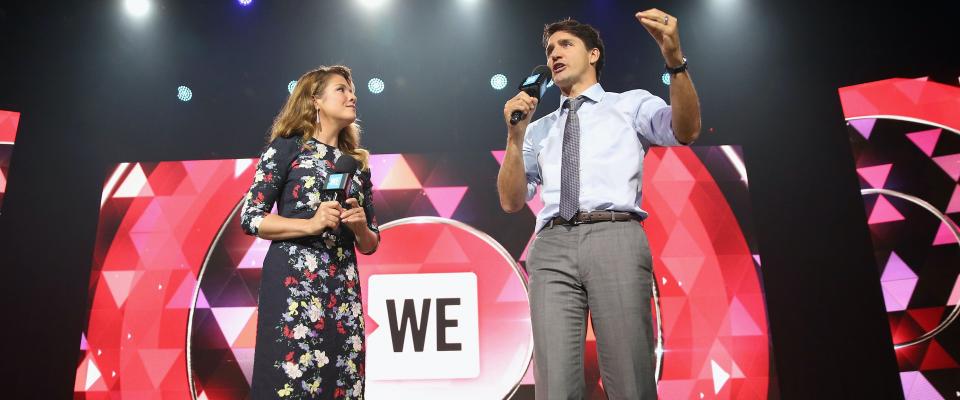PSAC National President Chris Aylward delivered the following remarks to the House of Commons Standing Committee on Finance on July 21:
The Public Service Alliance of Canada represents over 200,000 workers, and 150,000 of those workers work in the federal public service and in federal agencies.
We also represent 40,000 members in the post-secondary education sector; some of these members would be eligible for the new Canada student service grant. We certainly understand the need for a program to assist students; however, this program and the process to establish it are seriously flawed.
The COVID-19 pandemic shut down most of the economy in March. Reopening the economy has been cautious, as it should be. However, this has had a serious impact on potential earnings for young people who are either on the verge of starting their post-secondary education or have recently graduated. The goal of the Canada student service grant program is to provide them with earning opportunities.
While the program was announced on April 22, the announcement that WE Charity would be given the contract to administer it was not made until June 25. It appears that WE Charity was advised two weeks earlier that it would receive the contract. The Prime Minister has claimed that bureaucrats had determined that WE Charity was the only feasible option to deliver the student grant program.
Subsequent events have raised questions about how the decision was actually made. We ask why the federal public service was not directed to administer the student grant program in the first place. At one point, the Prime Minister claimed that WE Charity was the only organization capable of delivering the program on the scale that was needed, yet a significant portion of the grant program budget, $43.5 million, would have gone directly to WE to ensure that their organization could deliver the program. The size of the program, $912 million, is a very large amount for any organization to administer across all provinces and territories, and in all regions of the country.
The successful rollout of the much larger Canada emergency response benefit program, CERB, was done in very short order, and it proved the public service capable of adapting to meet new demands and moving quickly to do so. While the government has argued that the student grant program needed to be turned around quickly, it took almost two months to even announce who would receive the contract. Today, three months later, the program is still not in place. While the program was scheduled to run until October 31, students will have more difficulty accumulating the necessary hours to actually receive any grant money.
If the program had been turned over to the public service to organize a delivery system, it is likely that students would now be receiving some actual benefit. For example, the student loans program could have been adapted to expand eligibility and include grants equal to the funding allocated to the student service grant program. The infrastructure was in place, and this would have gone a long way to alleviating students' concerns about how to pay for tuition, materials, food and lodging while they study. It would have also supported students who may have to defer their continuing education for financial reasons due to the pandemic. I suspect that if the program is going ahead, it will be turned over to Employment and Social Development Canada, as it should have been from the start.
In addition to questioning why the government decided to contract out this program, we are concerned about the premise of the program, which would pay volunteers. We see this as just another example of young people being forced to accept precarious work at poverty-level wages. The payments are calculated using 100-hour thresholds for each $1,000 grant. That's a wage of $10 an hour, which isn't even minimum wage. Minimum wages are at least $11 an hour and higher across the country. For example, in Ontario, it's $14 an hour.
Students may actually end up making even less than $10 an hour. The grant will be calculated using 100-hour thresholds and will be rounded down. Students need to work a full 100 hours to get any money at all. If they work more than 100 hours, but less than 200, they are providing free labour for the additional hours. It is also ironic that the federal government has brought in regulations under the Canada Labour Code to restrict the use of unpaid internships, yet it is expecting students to work unpaid hours under the student service grant program.
Paying students to carry out volunteer work means that they are no longer volunteers. Simply calling them volunteers will not protect the government or the organizations employing them from violating provincial labour standards. PSAC agrees that students need support during this very difficult time. What they don’t need is a program that shortchanges them for their labour.
The government could have organized the program to pay students to work for non-profit agencies and charities, carrying out duties that volunteers could not do, or to perform work that would not be done due to a shortage of volunteers. They could have been paid at least minimum wage for their work, but ideally a wage more closely aligned to the type of work they would be performing, and they could be paid for all their work. For that matter, why introduce a grant program that emphasizes volunteer experience as opposed to job experience? The government could have taken immediate action to bolster existing summer student employment programs, including the federal student work experience program.
Finally—and let me conclude—if the government had either used existing programs or asked the public service to set up a new student work and payment plan, it would have avoided the conflict of interest issues that have come to light since the WE Charity announcement, and it would have been able to deliver both pay and work experience to students.
 Member Login
Member Login



